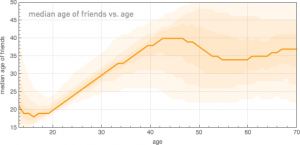Return of the Pomegranate: the sequel
While distracted by a conference in late January, I missed the next exciting installment of the Edinburgh pomegranate saga.
As you will recall, a research group in Edinburgh have put out press releases in recent years about the impact of pomegranate juice on blood pressure, cortisol (a stress hormone), and testosterone. They haven’t published any scientific papers about these findings, though they have produced a presentation at a scientific conference.
The most recent installment claims that pomegranate extract reduces hunger and food consumption. This study seems to be better designed than the previous ones: participants were randomised to pomegranate extract tablets or placebo for three weeks. They were then given a glass of pomegranate juice and a meal. Those who had been taking the pomegranate extract reported feeling less hungry and ate less — 22% less. It’s a pity the study didn’t measure weight, because if the 22% reduction in food consumption generalised beyond the one experimental meal it would have led to measurable weight loss over three weeks.
Again, this was a premature and unsubstantiated press release, and the experiment has not been published in a peer-reviewed journal, although the researchers do at least say they will be presenting it at a conference later in the year.
